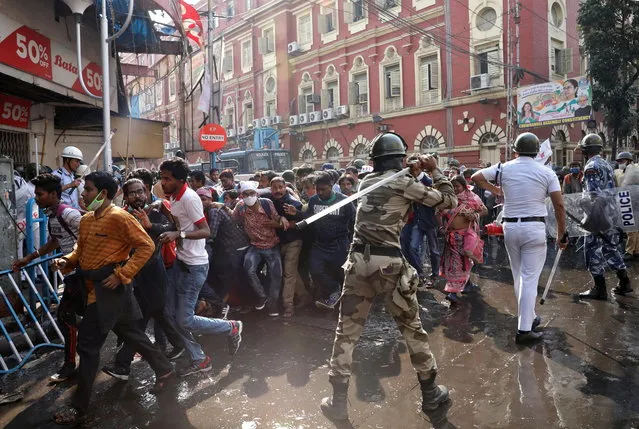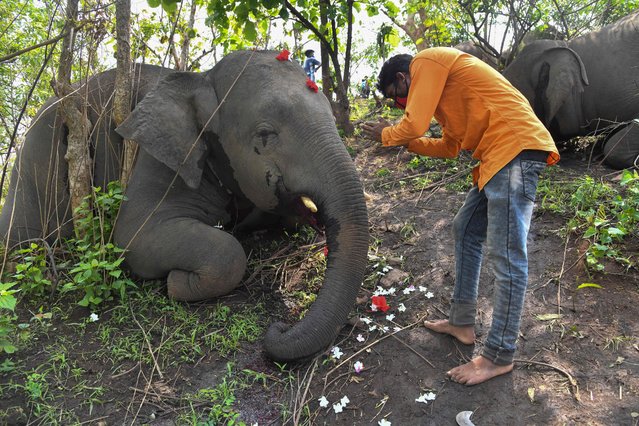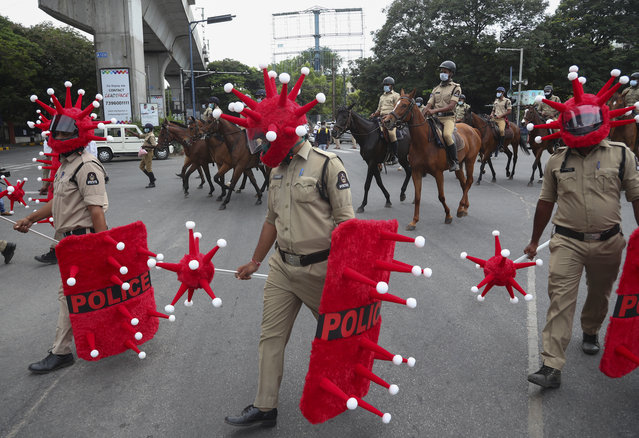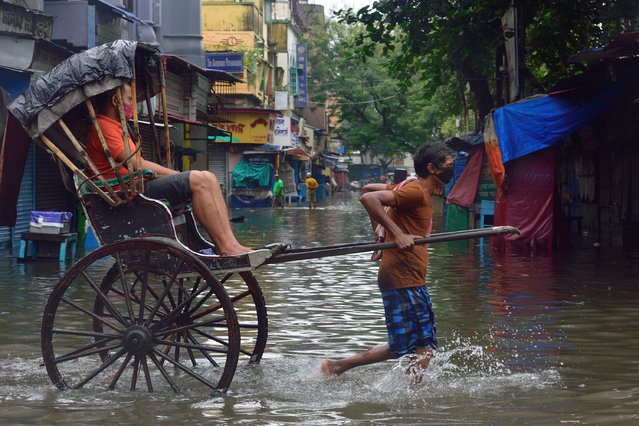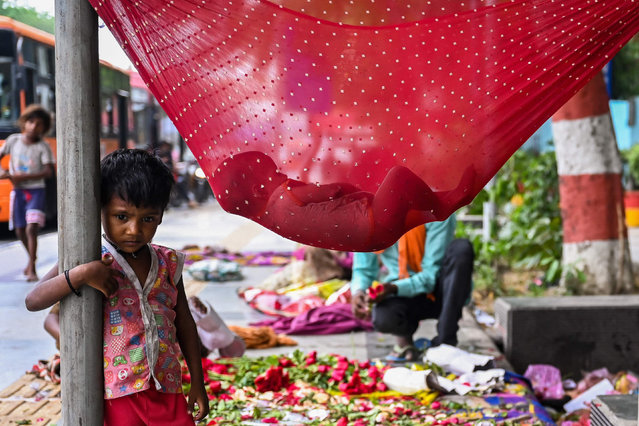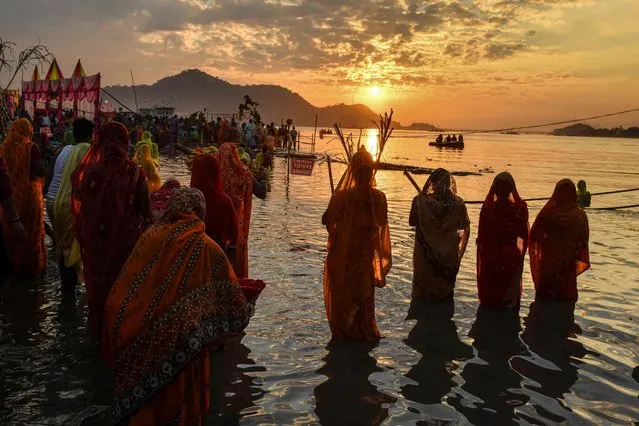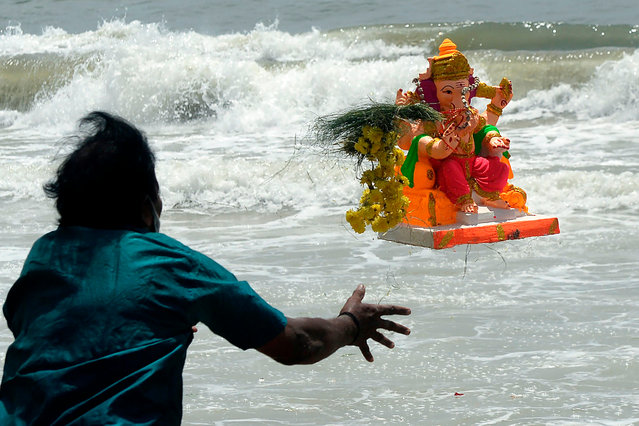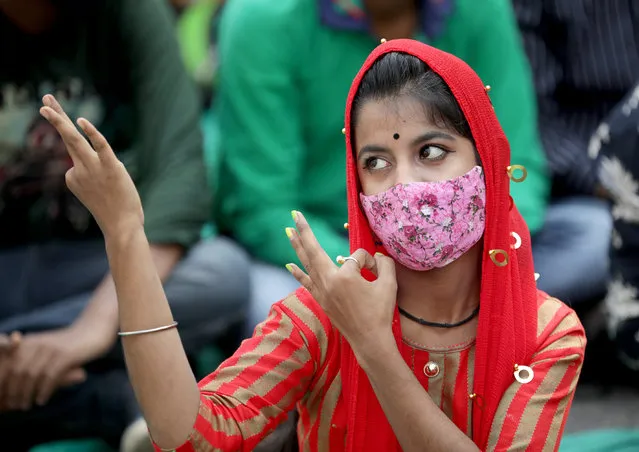
A woman with disability communicates with sign language as they sit and demonstrate with Disability Activists Forum demanding their rights from the Bengal Government, during the International Day of Persons with Disabilities in Kolkata, Eastern India, 03 December 2021. The International Day of Persons with Disabilities is annually observed on 03 December with an objective to promote an awareness of disability issues, the fundamental rights of persons with disabilities and integration of persons with disabilities in the mainstream of each aspect of the social, political, economic and cultural status of their communities. (Photo by Piyal Adhikary/EPA/EFE)
